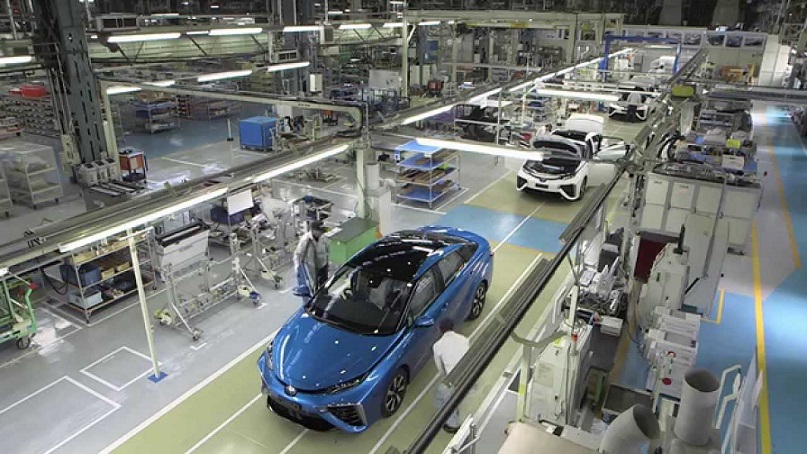
Toyota Motor Corp. reported 1.4 percent higher global output in February 2023. The Japanese automaker produced 896,712 vehicles last month. Global sales, including Daihatsu Motor Co. and Hino Motors Ltd., rose 10.5 percent to 856,376 units, the company said in a statement Thursday.
Domestic sales and production rose year-on-year for the second month in a row, with Japan sales climbing 38 percent to 213,698 units, as the automaker is gradually recovering from a shortage of semiconductors for automobiles and lingering disruption from the COVID-19 pandemic.
In February, Toyota maintained its forecast for output at 10.4 million units for the fiscal year ending this month.
Separately, Nissan Motor Co. said its global output rose 9.2 percent to 300,734 vehicles, while sales climbed 1.2 percent to 265,101 units.
Honda Motor Co.’s global production dipped 1.2 percent to 340,574 vehicles, the company said.
The global semiconductor shortage has had a significant impact on the automotive industry, causing disruptions in car production and supply chains. Semiconductors are a crucial component of modern cars, used in everything from engine control units to infotainment systems.
However, the pandemic-driven surge in demand for electronics and computer hardware, coupled with supply chain disruptions and production shutdowns, has resulted in a shortage of semiconductors.
This shortage has led to reduced production of cars, as manufacturers struggle to source enough semiconductors to meet their production targets.
Some car companies have been forced to temporarily halt production at their factories, leading to significant revenue losses and delays in delivering cars to customers. In addition, some manufacturers have had to prioritize certain car models over others, based on the availability of semiconductors.
The semiconductor shortage has also affected the prices of cars, as the reduced supply has led to increased competition among buyers and higher prices for the available inventory. Some analysts predict that the shortage could persist well into 2022, leading to further disruptions in the automotive industry.
As a result, car manufacturers are looking for ways to diversify their supply chains and reduce their dependence on a single region or supplier for semiconductors.
Overall, a combination of economic recovery, pent-up demand, low interest rates, increased savings, and government stimulus may be contributing to the recovery of car sales.
Toyota upgrading Kentucky plant with $461mn investment
What are the prices of Toyota, Honda, Suzuki & KIA cars for 2022